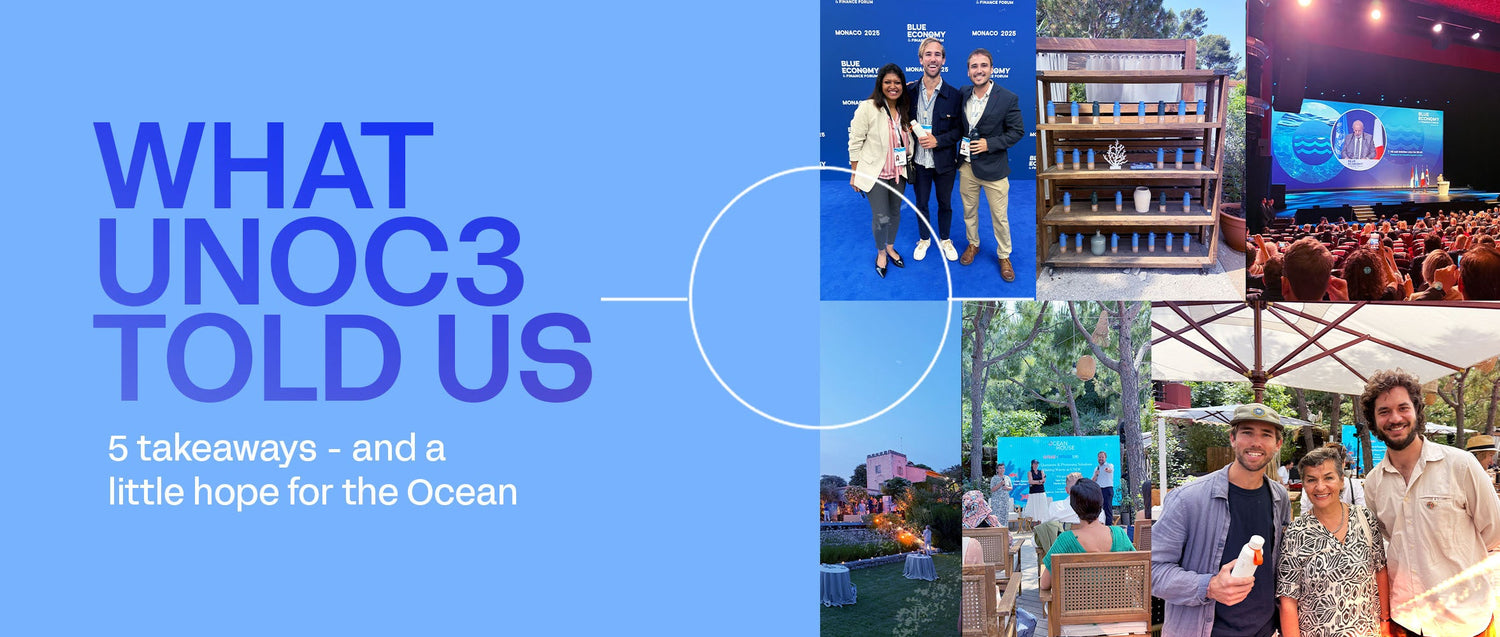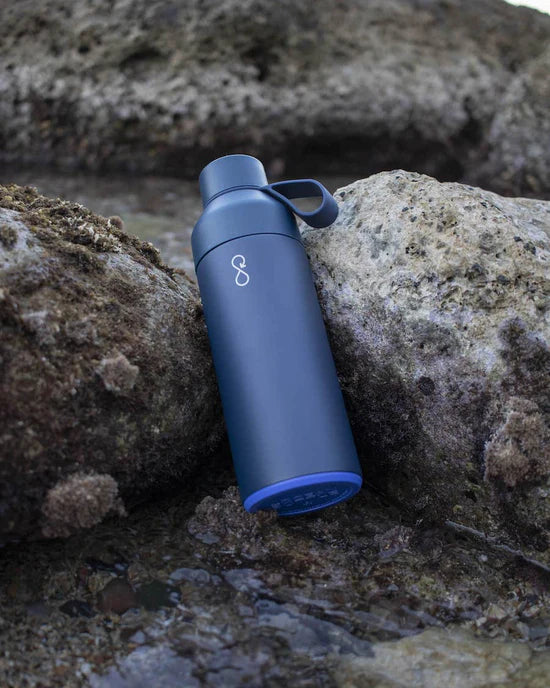The 3rd UN Ocean Conference wrapped in Nice with bold pledges, tough questions, and one clear message: business-as-usual won’t cut it.
From plastic pollution to climate resilience, the ocean is central to our planet’s future. One message kept resurfacing: we already know what needs to be done. Now we need to actually do it.
1. Ocean Action is Climate Action
The ocean isn’t just part of the climate conversation, it’s central to it. At UNOC3, the UN Secretary-General was clear: we can’t meet global goals on climate, poverty, food security, or equity without a healthy ocean.
The ocean absorbs over 90% of excess heat from global warming. It generates more than half our oxygen. It's a massive carbon sink, a weather regulator, and a food source. At UNOC3, this message landed hard: protecting the ocean isn't a side quest in the fight against climate change - it’s central to it.
2. Plastic is a systems flaw, not a consumer failure
One of the more uncomfortable truths to surface at UNOC3: we can’t recycle our way out of this problem. Plastic pollution isn’t caused by poor individual choices, it’s the result of systems intentionally designed for disposability.
Sessions in Nice pushed back on the outdated narrative that responsibility lies with consumers. As the Global Issues UNOC3 report made clear, true accountability must lie with those designing, producing, and profiting from plastic waste. That includes companies, investors, and policymakers, not everyday people trying to make better choices within broken systems.
That’s exactly why Ocean Bottle is built with circularity and longevity in mind. We’ve invested in plastic collection infrastructure, and design products using durable, recyclable materials that are built to last. We’re not here to guilt people into using less, we’re here to change the system that makes waste the default.
The burden shouldn’t fall on those living with the consequences. It should fall on those making the mess.
3. Collaboration beats perfection
UNOC3 reinforced what we’ve always believed: we don’t need a handful of people doing everything perfectly. We need millions doing it imperfectly, together.
This came through strongly in the global momentum behind the plastics treaty. Over 100 countries backed the Nice Declaration to tackle plastic across its entire lifecycle. The process isn’t smooth, but progress rarely is.
At Ocean Bottle, our impact has always come through partnerships: with waste collectors, NGOs, businesses, and individuals. We’re not waiting for perfect conditions. We’re acting anyway.
4. Innovation with impact
There’s no shortage of innovative ideas in the ocean space. But at UNOC3, the most compelling solutions weren’t the most high-tech, they were the most grounded. The projects that combined local knowledge, design thinking, and measurable impact stood out.
There is real momentum here around solutions. Solutions that remove waste, empower communities, and drive systemic change - this is the work that lasts. From seaweed based plastic alternatives to cutting-edge data tools to protect marine ecosystems, these innovations are creating real hope for a healthier, more resilient planet.
Products with purpose, like our Ocean Bottle, are proving they can scale. We’ve helped stop over 20 million kilograms of ocean-bound plastic, and supported thousands of jobs in coastal communities along the way.
5. People protect what they love
Many sessions at UNOC3 returned to a simple truth: without emotional connection, action won’t follow. Ocean literacy, education, and storytelling aren’t just soft tools, they’re critical levers.
The ocean isn't helpless. It’s powerful, regenerative, and worth fighting for. But if people don’t feel connected to it, they won’t do their part to protect it.
That’s why Ocean Bottle exists. Not just to play our part in tackling plastic pollution, but to reconnect people with the ocean through storytelling, design, and meaningful participation. Because no policy can replace a sense of belonging. And if we want to turn the tide, we need to make people feel something.
Final thought: the tide is turning. Slowly
UNOC3 made one thing clear: the ambition is there. The science, the funding, and the global commitments are beginning to align. But what happens next depends on follow-through.
The time for pledges is over. The ocean doesn’t need promises - it needs action.
From banning destructive bottom trawling to ending plastic at the source, we know what must be done. Now it’s up to all of us. Businesses, governments, and individuals, it’s time to move with courage, collaboration, and commitment.
Take Action
Take ActionUNOC3 saw leaders call for a moratorium on deep-sea mining, but strong public pressure is needed to turn promises into action.
The deep ocean holds some of the planet’s most ancient and fragile ecosystems. Mining it for minerals risks irreversible damage to biodiversity and climate stability.
Sign the petition to show public support for protecting the deep sea. Spread the word using #DeepSeaMiningMoratorium and #UNOC3.
Act with intention. Demand accountability. Build solutions that last.
Because the ocean can’t wait. And neither should we


